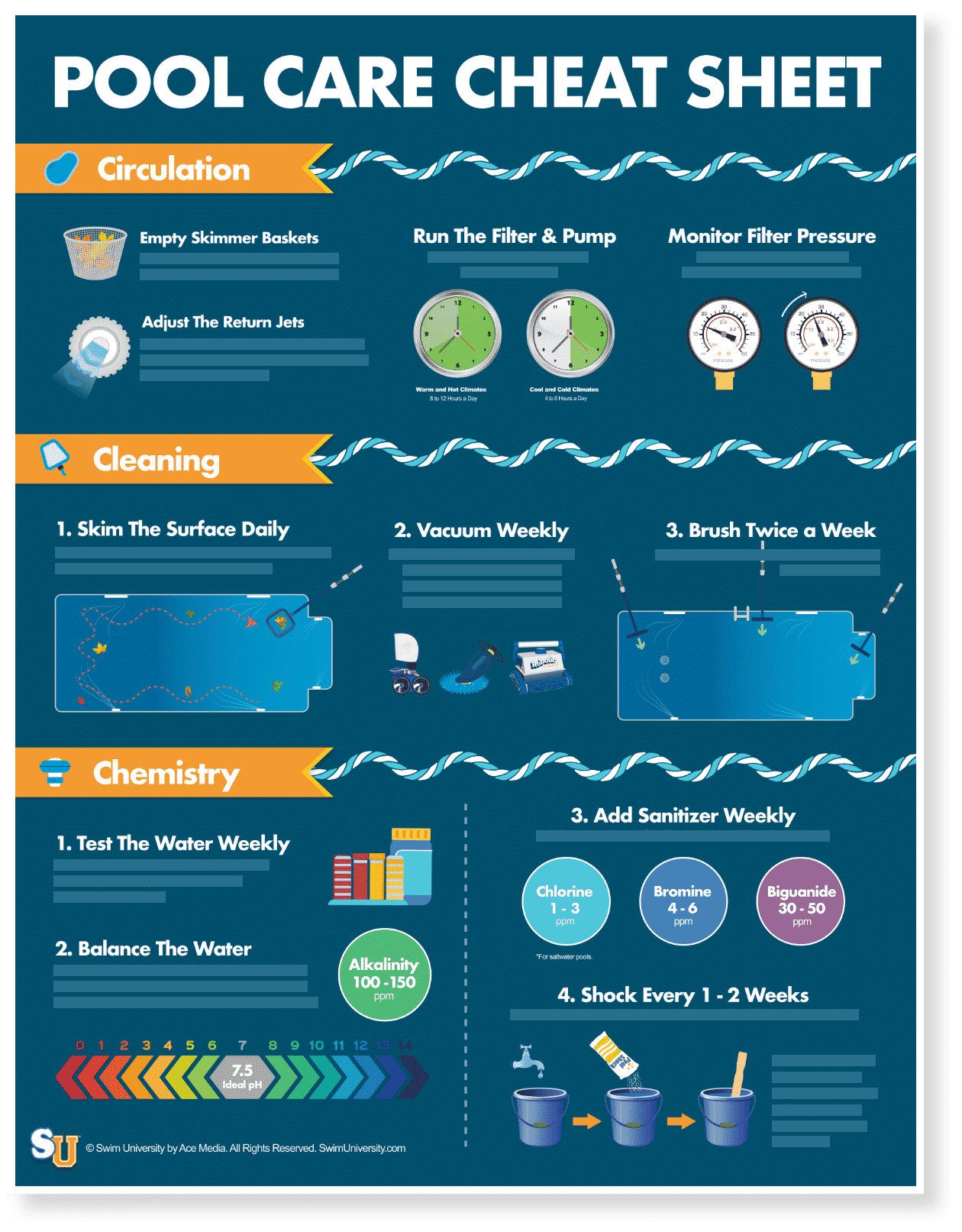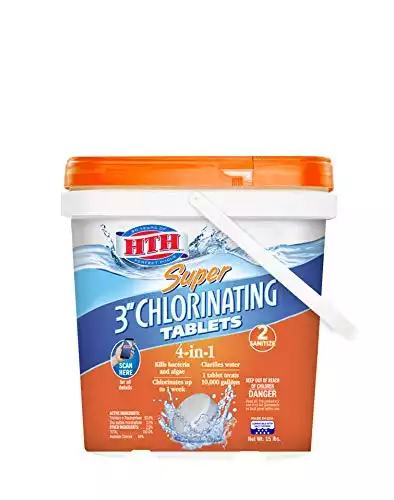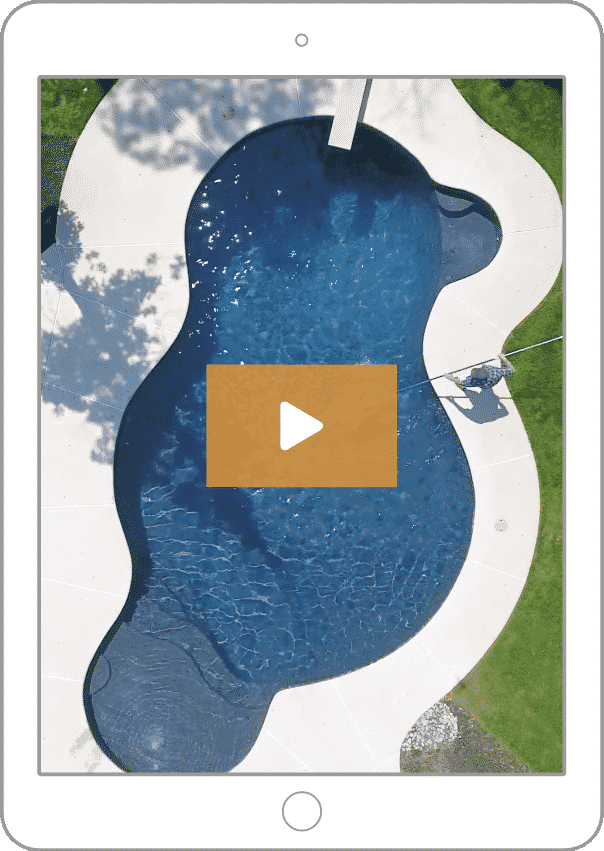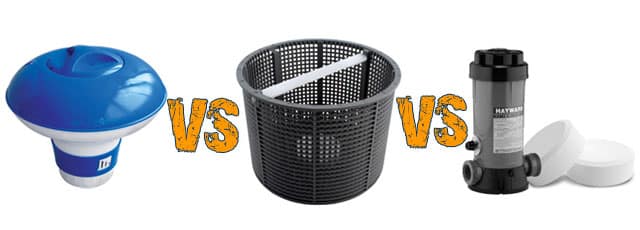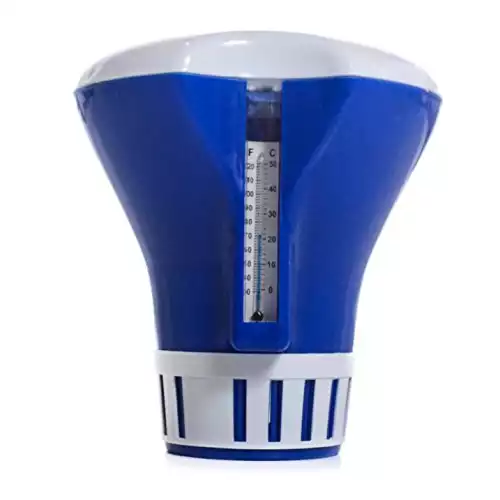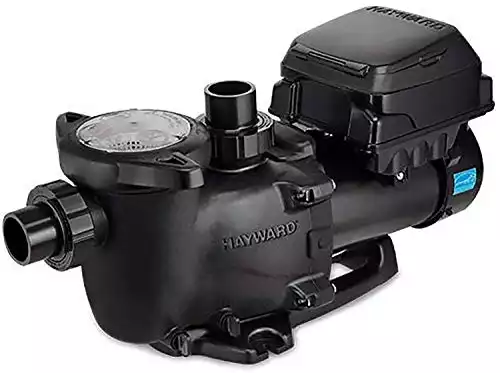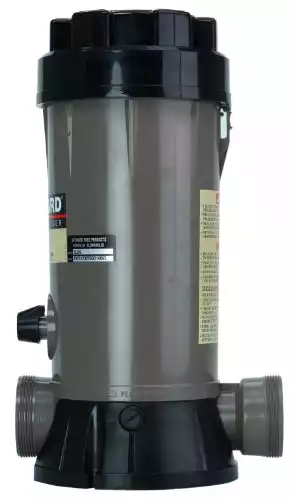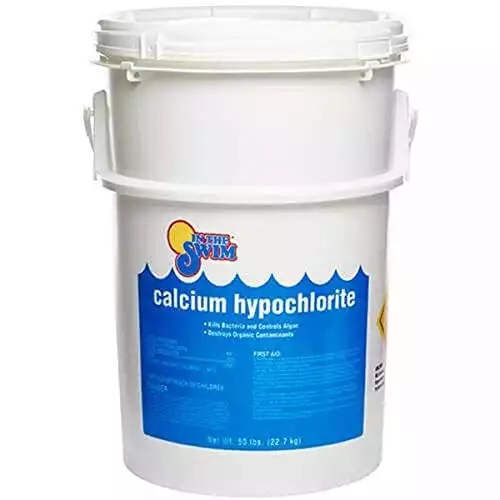Owning a pool means spending a lot of time keeping the water clear of unwanted intruders. Whether you’re learning how to keep ducks out of your pool, skimming away leaves and bugs, or researching how to kill algae in your pool, keeping things out of your water can seem like the most important job you have as a pool owner.
But as it turns out, it’s something you add to the water that makes the biggest difference. Sanitizer is one of the cornerstones of basic pool chemistry, and adding chlorine tablets is an easy way to introduce this essential chemical to your pool.
What’s So Great About Chlorine Tablets?
You may be wondering why we’re focusing specifically on tablets rather than just chlorine in general. It’s simple. Chlorine tablets are easier to use, and they dispense chlorine at a steadier rate than tossing a few scoops of chlorine granules into the pool.
But before we get further into the benefits and use of chlorine tablets, let’s take a look at chlorine in general.
Why We Add Chlorine to Swimming Pools
Because it’s inexpensive, powerful, and effective, chlorine is one of the most popular pool sanitizers on the market. Adding chlorine to your pool water will kill viruses and bacteria, keeping you, your friends, and your family safer when swimming.
Stock up and save money on chlorine tablets for the season by getting the standard 3-inch stabilized chlorine pucks.
How Much Chlorine Should You Add to Your Swimming Pool?
Ideally, the chlorine concentration of your swimming pool should be at least 1 part per million (ppm), and not go above 3 ppm.
Staying within that range is the safe and smart way to balance protection against contaminants with the risks of having too much chlorine in the water, which can cause eye, nose, lung, and throat irritation.
To ensure your pool water has the right amount of sanitizer, regular pool water testing is essential. You can use test strips or test kits to determine the exact levels of chlorine and other chemicals, and then fine-tune them as necessary.
Frustrated by adding chemicals and trying to keep your pool clear all the time?
We cut out all the confusion of pool maintenance in this easy-to-read illustrated ebook and video course. It'll help you save $100 right away on pool care!
Click Here to Learn MoreHow to Choose the Right Chlorine Tablets for Your Pool
Chlorine tablets come in one-inch and three-inch sizes. We recommend the three-inch tablets because they’re easier to handle and, depending on their popularity in your area, might even be less expensive than the one-inch version.
We also recommend the three-inch chlorine tablets because they provide sanitation for 5,000 gallons of water per tablet, meaning you can use fewer of them, which can also save you money.
To know how many tablets to use, you’ll need to know your pool’s volume. If you don’t already know how much water your pool holds, use this pool calculator to quickly and easily figure it out.
To use the right number of tablets, always round your pool volume up to the nearest unit of 5,000 gallons. For instance, your pool has a capacity of 20,000 gallons, you would add four chlorine tablets. But if your pool holds just 16,000 gallons, you’d still use four, three-inch chlorine tablets. It’s that easy.
Four Ways to Add Chlorine Tablets to Your Pool
If you’re used to using chlorine granules that you add directly to the water, you may be thinking you can just throw a handful of tablets in and hope for the best.
Whoa, there! Before you start trying to skip those chlorine tablets on the surface of your pool, consider a few better options.
Floating Chlorine Dispenser
These plastic pool gadgets travel around your pool, dispersing sanitizer as the chlorine tablets inside dissolve. They’re convenient and low-maintenance, but if you have a pool liner, floaters may not be the right choice.
Floating dispensers can sometimes get caught in one location and dispense too much chlorine in a concentrated area, discoloring and even damaging your pool liner. They’re also passive, dispensing chlorine unevenly without flowing water passing over them as part of your pool’s water circulation.
Combined with the unwanted anxiety about possibly damaging your pool liner, the potential for disaster is simply too high compared to the perceived convenience.
Pool Skimmer
A better method is adding chlorine tablets directly to your swimming pool skimmer. When your filter is running, water will move quickly over the tablets in the skimmer basket, dissolving them much more effectively than the floater does. The chlorinated water is then pushed into your pool through the return jets, allowing chlorine to spread evenly throughout the pool.
One potential drawback to adding chlorine tablets to your skimmer basket is that the tablets will continue to dissolve even when the filter isn’t running. This can create some highly chlorinated, highly corrosive water that can damage your equipment if left unattended.
You can get around this problem by removing the partially-dissolved tablets when your pool filter isn’t running, or by installing a variable-speed pool pump to cycle water continuously without running up an outrageous electric bill.
This pool pump can save you up to 80% on energy costs and is incredibly quiet thanks to the permanent magnet, totally enclosed fan-cooled (TEFC) motor. Simple drop-in upgrade that can operate in standalone mode or connect to any automation system.
Automatic Pool Chlorinator
This is our chlorine tablet dispersion method of choice. If you want greater control over your pool’s chlorination levels and don’t like messing with chlorine tablets more than necessary, a pool chlorinator is your best bet.
You can load it up with tablets, set it for a chlorine level of 1 ppm to 3 ppm, and verify the level with test strips until you get a feel for the setting that works best based on your pool use, weather, and water quality.
This method combines the greatest efficiency and convenience for adding chlorine tablets to your pool. Just remember to make sure your chlorinator is the last thing the pool water passes through before re-entering the pool to make sure your water is clean, clear, and properly chlorinated.
This automatic chlorinator is perfect for the pool owner who hates fussing with chlorine tablets. With its dial control valve, you can easily adjust the chlorine level depending on your pool's size.
Chlorine Granules
The pulverized version of chlorine tablets can be sprinkled directly into your pool water. You can use this method if you like. However, be aware that it’s more localized than any of the other three methods, which makes it less effective.
It’s also more time consuming—there’s a lot of measuring to be done—and can, as with a chemical floater, bleach your liner or damage equipment if the chlorine builds up in one area. For these reasons, we much prefer the automatic chlorinator or the second-best skimmer method.
Chlorine Tablets Relieve Headaches
OK, not really. We just mean that adding chlorine tablets to your pool doesn’t have to be a headache that has you reaching for another kind of tablet. All you need to do is decide how much time, effort, and investment you’d like to make.
Then sanitize your pool with the method that’s easiest, most convenient, and most effective for you, and you’ll be able to use your pool with total peace of mind.
Happy Swimming!

Recommended Guides
At the right levels, cyanuric acid protects chlorine in your pool and helps keep your water sanitized. Here's how to balance cyanuric acid.
Does the type of pool shock you use make a difference? If you're not using calcium hypochlorite to shock your pool, you may want to reconsider your choice.
Exactly how much shock should you add to your pool? It depends on your pool's water. Here's how to calculate the right amount of pool shock.
Is a non-chlorine shock right for your pool? Here are a few pool maintenance scenarios when it works well and when it doesn't.
